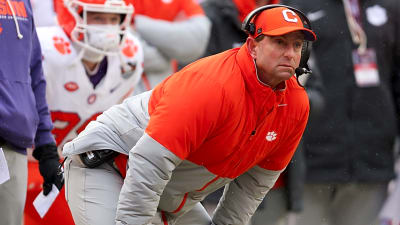
Free-spending Dodgers highlight MLB's great divide
The Los Angeles Dodgers' projected 2025 payroll could fund the entire rosters of the Athletics, Tampa Bay Rays, Chicago White Sox and Miami Marlins combined. Let that sink in.
After the Dodgers signed left-handed reliever Tanner Scott to a four-year deal Sunday, their opening day payroll soared to a big-league high $374.5M, per Spotrac.
Beyond another tale of baseball's rich getting richer, the Dodgers' spending represents a breaking point MLB has been hurtling toward for decades. This story exposes fundamental flaws in baseball's economic structure — flaws that threaten the sport's competitive foundation.
The luxury tax, introduced in MLB's 1996 collective bargaining agreement following the 1994 strike, was meant to bridge the gap between players and owners. As Nathaniel Grow of FanGraphs notes, it offered "a check on the highest-spending teams' payrolls without creating the sort of official salary cap that the players have historically objected to."
That bridge is now crumbling. Spotrac projects 25 of MLB's 30 teams will begin 2025 under the $241 million luxury-tax threshold, with more than half spending less than $200 million on payroll.
Meanwhile, MLB revenues reached $11.6 billion in 2023, with Commissioner Rob Manfred telling the Sports Business Journal even higher revenues are expected when 2024's numbers are revealed.
The impact on fan engagement is already evident. Maury Brown of Forbes reported the Athletics drew just 922,286 fans in their final Oakland season — the only club below one million. Even traditional strongholds aren't immune: The St. Louis Cardinals saw attendance plummet by 344,331, despite still ranking seventh overall.
MLB Players Association executive director Tony Clark cut through the ownership rhetoric in 2023, telling reporters the pertinent question isn't whether teams can keep up with big spenders, but whether they "can't or won't." Clark's position is clear: "We're never going to agree to a cap."
The solution? MLB needs a salary floor requiring teams to spend within 10% of the luxury-tax threshold. The NBA already employs this model successfully, mandating teams spend 90% of the salary cap and creating legitimate competition between small and large markets.
Former ESPN writer Molly Knight recently shared an illuminating conversation about why this change faces resistance. When she asked former Dallas Mavericks principal owner Mark Cuban about potentially buying the small-market Pittsburgh Pirates, he responded that the team's owners would never sell because they're pocketing tens of millions in passive income annually.
I think @mcuban.bsky.social should buy the Pirates. I asked him if he would. He said he’d love to but those owners will never sell because they’re running a business that allows them to pocket tens of millions of dollars a year in passive income.
— Molly Knight (@mollyknight.bsky.social) January 19, 2025 at 12:01 PM
[image or embed]
This broken system has real consequences. Since 1995's wild-card era began, 27 of 30 World Series champions ranked in the top half of MLB payrolls, with 21 placing in the top 10. The math isn't complicated — spending wins championships.
With collective bargaining negotiations looming in 2026, baseball stands at a crossroads. Clark noted the timeline, saying, "If you stay ready you don't have to get ready, amirite?"
He's right. Baseball can't afford to wait for another labor stoppage to address its economic divide. The game's future — and its connection to fans across all markets — depends on finding a solution now.
More must-reads:
- The 25 greatest MLB play-by-play announcers
- Dodgers keep adding to stacked roster with All-Star pitcher
- The 'Top-50 all-time NFL rushers' quiz
Breaking News
Trending News
Customize Your Newsletter
 +
+
Get the latest news and rumors, customized to your favorite sports and teams. Emailed daily. Always free!








